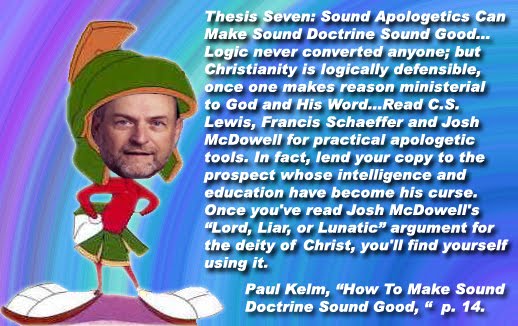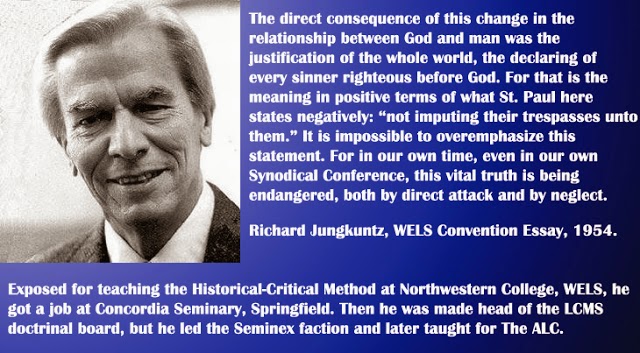 |
Robin Steinke came to install the new female head of the Berkeley ELCA seminary,
which has very few students but very valuable land.
The seminary has merged with California Lutheran U.,
so Boss Bloomquiest is merely a dean. |
This ELCA pastor, Nadia Bolz-Webber preaches herself and really likes the word "like." She likesays like whenever transitioning to another, like, story about her favorite topic, her amazing life.
 |
Bolz-Webber is popular with the in-crowd in WELS,
but they have a thing for the ambiguous in transition. |
---
Feel free to watch the installation of Robin Steinke as president of Luther Seminary, where Jack and Robert Preus attended.
I found the entire service to be strained, awkward, and weird. This is the largest seminary for Lutherans, but the church was not full. The school is located in the Twin Cities, where one ELCA congregation alone has 10,000 members. Those attending seemed mostly to be seniors - not seniors in seminary, but elderly and possibly stunned.
The choir was small; the orchestra accompanying it was every bit as good as a high school band.
One of the opening songs was African, so Steinke can be seen rocking back and forth a bit. The new ELCA presiding bishop, Liz Eaton, is petite and mannish. Robin Steinke is large and mannish, wearing slacks, heavy boots, and preaching from the chancel holding a notebook. The face mike reminded me of Ski's attempts to be cool.
The pulpit was nearby but empty. Everything is in code. The radical Left knows what the language and symbols mean. Pacing about in the chancel is a message, like Ski preaching in his car repair clothes. Words about new horizons and reaching out to the marginalized - that means their radical Left activism that will leave liberal mouths hanging open in dismay.
If you want to study bumbling sermons, try to listen to Steinke. Everything seems to say, "We finally got to take over the ELCA institutions, and now it is not so fun."
I could not find a news story about the event, which should be a major bragging point. The gay Left was thrilled with Eaton taking over ELCA. Reconciling Works, their home base, bragged about Eaton, who is safely married to a man. Why not Steinke? Her domestic status is never mentioned. That may account for the sullen reaction to her installation - but I am only speculating.
 |
Karen Bloomquist is the new dean of the transplanted California seminary.
Her obedient husband Bill is on the right.
The old campus had a spectacular view - they will miss Sodom-by-the-Bay. |
 |
This pot on the head dance was part of the Bloomquist installation.
Where do they get these clowns? |
 |
Try to read her Leftist mumbo-jumbo below.
She is not speaking in tongues.
She is speaking in gay Marxist rhetoric. |
Karen Bloomquist
I am a constructive theologian/ethicist, pastor and administrator, committed to preparing the people of God to discern critically and work collaboratively with others to further God’s liberating mission in pluralistic, multi-faith contexts. Given the global horizons within which I have been networking, teaching and writing over the past decade, I am eager to find ways in which my experience, expertise and perspectives might be drawn upon in the preparation of religious and other leaders in settings throughout the world. Throughout my career, my passion has been relating to, analyzing and actively seeking to change situations of injustice and furthering God’s mission in the world.
Education
Ph.D., Theology, Union Theological Seminary [The Devil's Playground], NYC
M.Div., Pacific Lutheran Theological Seminary
B.A., Sociology and Religion, St. Olaf College
Professional History
Director, Department for Theology and Studies, Lutheran World Federation
Associate Professor of Theological Ethics, Wartburg Theological Seminary
Director for Studies, Division for Church in Society, Evangelical Lutheran Church in America
Assistant Professor of Church and Society, Lutheran School of Theology at Chicago
Pastor, Lutheran Church of St. Philip, Brooklyn, NY
Pastor, Faith American Lutheran Church, Oakland, CA
 |
Chairman of the Board -
Don't say his name three times in a row.
|


































